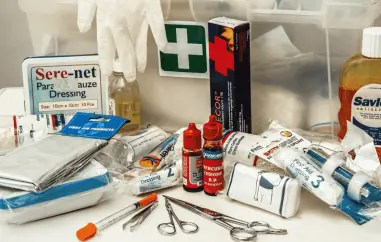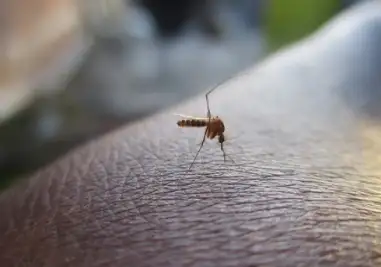Cat Bite, Burn Blister, or Insect Bite: Tips for Treating Minor Injuries
 Minor injuries like cat bites, burn blisters, or insect bites can occur unexpectedly and often leave individuals searching for effective ways to alleviate discomfort and promote healing. While these injuries may seem insignificant, proper treatment is essential to prevent complications and ensure a speedy recovery. Here's a comprehensive guide on how to address common minor injuries at home:
Minor injuries like cat bites, burn blisters, or insect bites can occur unexpectedly and often leave individuals searching for effective ways to alleviate discomfort and promote healing. While these injuries may seem insignificant, proper treatment is essential to prevent complications and ensure a speedy recovery. Here's a comprehensive guide on how to address common minor injuries at home:
Cat Bite Wounds: Understanding the Risks
Cat bites may appear innocuous, but they can lead to serious infections due to the bacteria present in a cat's mouth. If you sustain a cat bite, it's crucial to clean the wound thoroughly with soap and water to reduce the risk of infection. Apply an over-the-counter antibiotic ointment and cover the wound with a sterile bandage.
Keep a close eye on the bite site for signs of infection, such as increased pain, redness, swelling, or drainage of pus. If you notice any of these symptoms or if the wound fails to heal within a few days, seek medical attention promptly. Your healthcare provider may prescribe oral antibiotics to prevent the spread of infection.
Burn Blisters: Cooling the Burn
Burn blisters can result from exposure to heat, chemicals, or friction. When dealing with a burn blister, it's essential to avoid popping or puncturing the blister, as this can increase the risk of infection. Instead, gently clean the affected area with cool water and mild soap to remove any dirt or debris.
Apply a cold compress or immerse the burn in cool water for 10 to 15 minutes to reduce pain and inflammation. Avoid using ice directly on the burn, as it can further damage the skin. Once the burn is cooled, cover it with a sterile, non-adhesive dressing to protect it from friction and bacteria.
Over-the-counter pain relievers like ibuprofen or acetaminophen can help alleviate discomfort. If the burn blister is large, or if you experience severe pain, swelling, or signs of infection, seek medical attention promptly. Your healthcare provider may need to debride the blister and prescribe topical or oral medications to facilitate healing.
Insect Bites: Soothing the Itch
Insect bites can cause itching, redness, and swelling due to the venom or saliva injected by the insect. To relieve symptoms, wash the affected area with soap and water to remove any residual venom or allergens. Apply a cold compress or take an over-the-counter antihistamine to reduce itching and inflammation.
Topical corticosteroid creams or calamine lotion can also provide relief from itching and discomfort. Avoid scratching the bite, as this can lead to secondary infection and prolong healing. If the itching persists or if you develop signs of a severe allergic reaction, such as difficulty breathing, swelling of the face or throat, or dizziness, seek emergency medical attention immediately.
Preventative Measures: Minimizing the Risk of Injury
While minor injuries are often unavoidable, taking preventative measures can help minimize the risk of accidents and injuries. When handling pets, especially cats, be cautious to avoid bites and scratches. Trim your cat's nails regularly and provide appropriate toys and scratching posts to redirect their natural behaviors.
When working with heat sources or chemicals, wear protective clothing, gloves, and eyewear to prevent burns and chemical exposure. Keep hot liquids and appliances out of reach of children and pets to reduce the risk of scalds and burns.
To prevent insect bites, use insect repellent when spending time outdoors, especially during peak mosquito activity times. Wear long-sleeved shirts, pants, and closed-toe shoes to minimize exposed skin. Use screens on windows and doors and avoid stagnant water sources to deter mosquitoes and other biting insects.
Minor injuries like cat bites, burn blisters, and insect bites can disrupt daily activities and cause discomfort if left untreated. By following these guidelines for proper wound care and taking preventative measures to minimize the risk of injury, individuals can effectively manage minor injuries at home and promote optimal healing. However, if symptoms persist or worsen, seeking medical attention is essential to prevent complications and ensure a speedy recovery.
Image by Steve Buissinne from Pixabay
Â



































